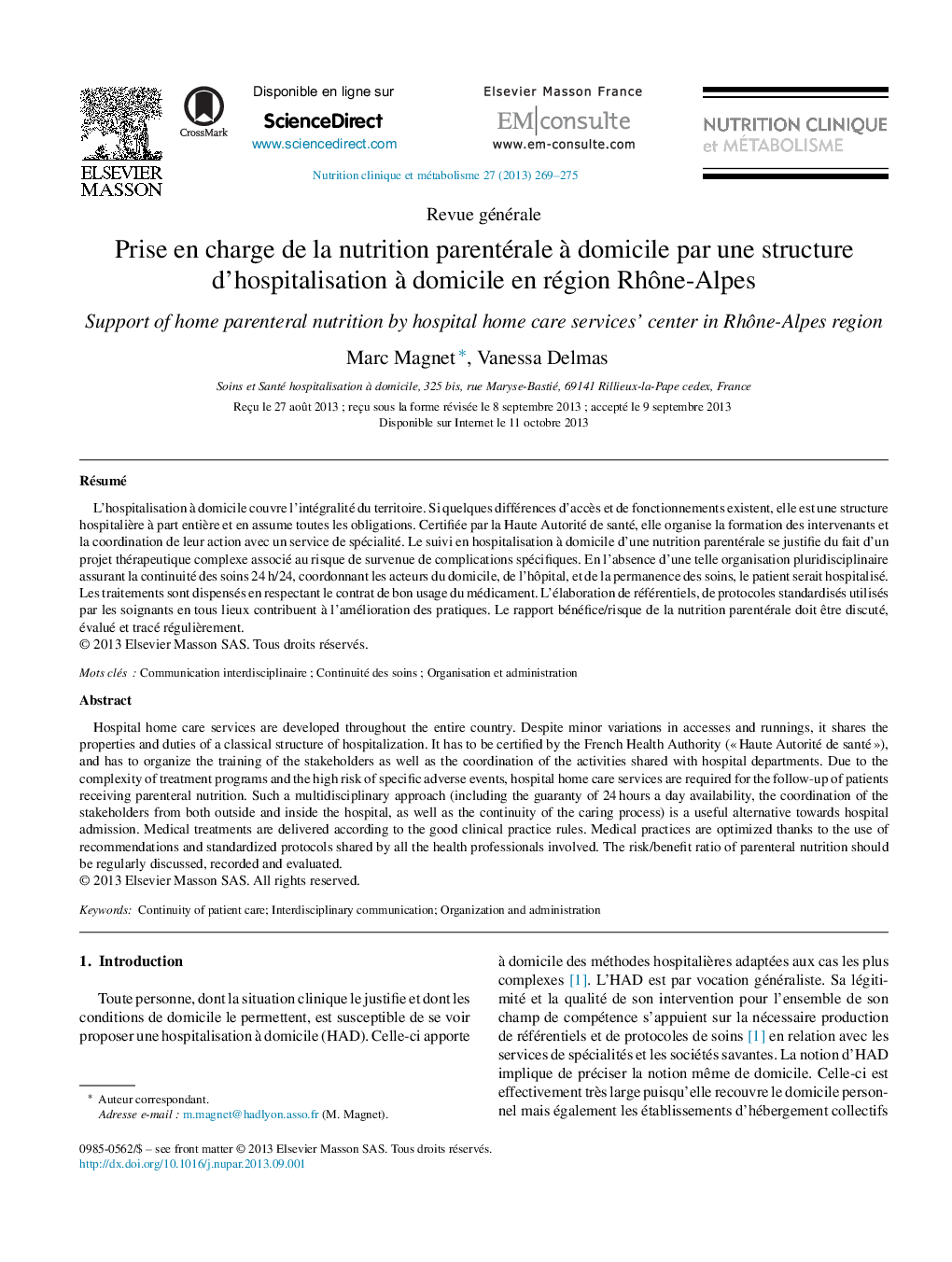| Article ID | Journal | Published Year | Pages | File Type |
|---|---|---|---|---|
| 2693952 | Nutrition Clinique et Métabolisme | 2013 | 7 Pages |
RésuméL’hospitalisation à domicile couvre l’intégralité du territoire. Si quelques différences d’accès et de fonctionnements existent, elle est une structure hospitalière à part entière et en assume toutes les obligations. Certifiée par la Haute Autorité de santé, elle organise la formation des intervenants et la coordination de leur action avec un service de spécialité. Le suivi en hospitalisation à domicile d’une nutrition parentérale se justifie du fait d’un projet thérapeutique complexe associé au risque de survenue de complications spécifiques. En l’absence d’une telle organisation pluridisciplinaire assurant la continuité des soins 24 h/24, coordonnant les acteurs du domicile, de l’hôpital, et de la permanence des soins, le patient serait hospitalisé. Les traitements sont dispensés en respectant le contrat de bon usage du médicament. L’élaboration de référentiels, de protocoles standardisés utilisés par les soignants en tous lieux contribuent à l’amélioration des pratiques. Le rapport bénéfice/risque de la nutrition parentérale doit être discuté, évalué et tracé régulièrement.
Hospital home care services are developed throughout the entire country. Despite minor variations in accesses and runnings, it shares the properties and duties of a classical structure of hospitalization. It has to be certified by the French Health Authority (« Haute Autorité de santé »), and has to organize the training of the stakeholders as well as the coordination of the activities shared with hospital departments. Due to the complexity of treatment programs and the high risk of specific adverse events, hospital home care services are required for the follow-up of patients receiving parenteral nutrition. Such a multidisciplinary approach (including the guaranty of 24 hours a day availability, the coordination of the stakeholders from both outside and inside the hospital, as well as the continuity of the caring process) is a useful alternative towards hospital admission. Medical treatments are delivered according to the good clinical practice rules. Medical practices are optimized thanks to the use of recommendations and standardized protocols shared by all the health professionals involved. The risk/benefit ratio of parenteral nutrition should be regularly discussed, recorded and evaluated.
